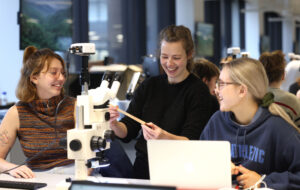About this course
The Town and Regional Planning MPlan programme is designed for those who wish to pursue a professional career in urban, regional and environmental planning. The MPlan offers two pathways with distinct specialisms in transforming cities and regions and spatial planning for environmental change.
Introduction
Attention is focused on approaches to planning for the urban environment in a rapidly changing world. An interdisciplinary approach to study provides learning opportunities that draw upon the expertise of academics in Planning as well as academics in the Departments of Geography, Sociology and Architecture.
With major changes occurring in how we address transport infrastructure, housing and green belt development studying a degree in Planning from the University of Liverpool provides the practical skills, as well as, the theoretical understanding required to balance the needs of urban and rural development.
You will develop a broad overview of how our towns, cities and regions have developed and have an opportunity to specialise in environmental or urban regeneration issues. With a pioneering approach to planning and regeneration, Liverpool is an ideal location in which to study town and regional planning. Over the past 30 years Liverpool has been transformed economically, socially and environment. Staff and students from Planning at the University of Liverpool have been part of these changes as they have been observing, reflecting and helping local planners, developers and communities to shape these changes. This makes Liverpool an ideal urban laboratory to study how our world is changing.
The Town and Regional Planning (MPlan) programme is designed to satisfy the professional accreditation requirements of the Royal Town Planning Institute (RTPI) and enables you to fast track into the planning profession. It is a combined programme that meets both spatial and specialist RTPI planning requirements.
You will have the opportunity, from year three onwards, to specialise in either Spatial planning and environmental change or Transforming cities and regions. The four year programme provides you with a more in-depth understanding of the practice-orientated nature of planning and its context than can be achieved in a one-year intensive masters programme.
Work experience opportunities
You will have the opportunity to work with real practitioners as we work with local and international experts on projects and field trips. You are also encouraged to undertake internships or placements with planning agencies throughout your programme.
A flexible approach
The Town and Regional Planning (MPlan) programme has been developed alongside our other planning programmes allowing you to transfer between programmes within the first two years should your interests or career aspirations change.
A number of the School’s degree programmes involve laboratory and field work. Fieldwork is carried out in various locations, ranging from inner city to coastal and mountainous environments. We consider applications from prospective disabled students on the same basis as all other students, and reasonable adjustments will be considered to address barriers to access.
This programme also has a year abroad option, an incredible opportunity to spend an academic year at one of our partner universities. On the four-year integrated master’s programme, you can go abroad either between years two and three (apply in year two), or between years three and four (apply in year three).
Accreditation
The programme is accredited by the Royal Town Planning Institute (RTPI) and Institute of Environmental Management and Assessment (IEMA), providing combined spatial and specialist accreditation (dependent upon module selection in year three).








